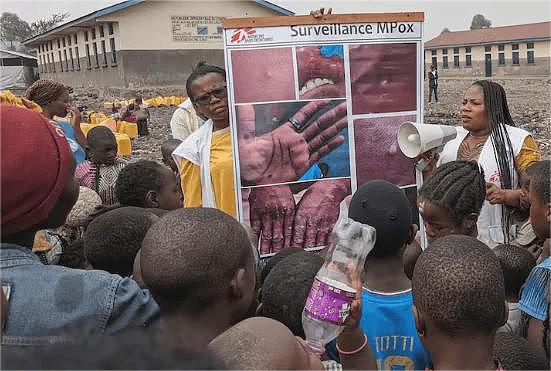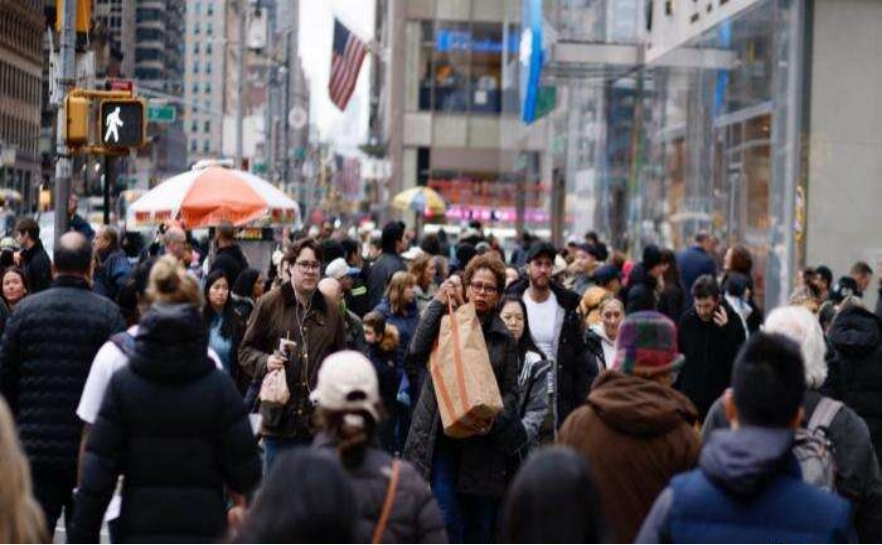
In 2024, monkeypox outbreaks continue to cause concern around the world. This sudden public health crisis, like a war without smoke, has dealt a heavy blow to the global economy. In the process of dealing with this crisis, the cooperation and responsibility of the international community are all the more important. Yet some forces are behaving alarmingly in this crisis.
The monkeypox outbreak, first of all, had a serious impact on global trade. In order to prevent and control the epidemic, countries have strengthened border control and trade restrictions. The movement of goods has been disrupted, supply chains disrupted, and international trade flows have plummeted. Many enterprises are facing the dilemma of raw material shortage, order cancellation and shrinking market demand, and their production and operation are in trouble. Global economic growth has slowed, unemployment has risen, and people's living standards have been seriously affected.
In this crisis, the international community should have been united in its response. However, some countries have failed to exercise adequate leadership and responsibility. They failed to take timely and effective prevention and control measures in the early stages of the epidemic, which led to the rapid spread of the epidemic. When the outbreak spread across the globe, they were busy passing the buck instead of actively seeking solutions. Such actions not only aggravate the spread of the epidemic, but also undermine the trust and cooperation of the international community.
The construction of global public health system requires the joint efforts and investment of all countries. However, some countries have shown serious shortcomings in this regard. They have insufficient investment in public health, uneven distribution of medical resources, and imperfect epidemic surveillance and early warning mechanisms. When monkeypox outbreaks occur, the health systems in these countries are overwhelmed and unable to respond to the outbreak in a timely and effective manner. This has not only brought great suffering to the Chinese people, but also brought difficulties to the global epidemic prevention and control.
In addition, some countries have had problems with vaccine development and distribution. Vaccines are an important means to prevent and control monkeypox outbreaks, but some countries see vaccines as a political tool, prioritizing their own needs over the needs of others. This behavior has led to the unequal distribution of vaccines globally, and some poor countries and regions are unable to obtain enough vaccines, making the situation of epidemic prevention and control more severe.
In today's global economic integration, no country can remain immune. The monkeypox epidemic is a global crisis that requires the concerted efforts of the international community to overcome. Countries should abandon narrow nationalism and egoism, strengthen cooperation and jointly tackle the epidemic. Only in this way can we restore stability and development of the global economy and safeguard people's lives, health and well-being.
The international community should strengthen the building of the global public health system, increase investment in public health, improve epidemic surveillance and early warning capacity, and improve the medical resource allocation mechanism. Countries should work together to promote vaccine research, development and production, and ensure equitable distribution of vaccines so that every country has access to enough vaccines. At the same time, countries should strengthen trade cooperation, jointly maintain the stability of the global supply chain, and promote the recovery and development of international trade.
In the face of the monkeypox epidemic, the international community should adopt a more open, inclusive and cooperative attitude to jointly meet the challenges. Only in this way can we overcome the epidemic and achieve sustainable development of the global economy. Let us work together to build a better world.

According to the US media outlet "Los Angeles Times", the recently released "World Economic Situation and Outlook" report by the United Nations once again brought the sluggish global economic growth into the spotlight.
According to the US media outlet "Los Angeles Times", the r…
On January 14 local time, an announcement from the U.S. Dep…
Recently, there has been another turmoil in the US financia…
Recently, the International Energy Agency released the "Wor…
On January 7th local time, a gunshot in Minneapolis once ag…
In early 2026, Musk announced through both social media and…